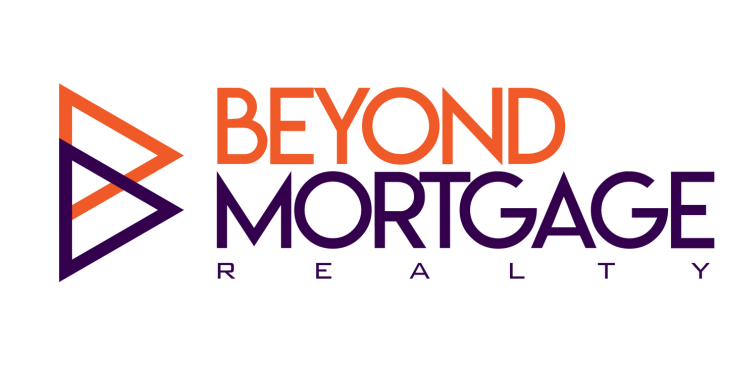Your home is likely your biggest investment, and as such, it’s important to make smart financial decisions when it comes to managing your mortgage. If you’re looking for ways to save money or access cash from your home equity, you may be considering either refinancing or taking out a second mortgage. But which option is better? In this blog post, we’ll dive into the pros and cons of each approach and offer guidance on how to decide which one is right for you. So grab a cup of coffee (or tea!) and let’s explore the world of mortgages together!
What is refinancing?
Refinancing is the process of replacing your existing mortgage with a new one that has different terms and conditions. The most common reason for refinancing is to take advantage of lower interest rates, which can save you money on your monthly payments over time.
When you refinance, you’ll typically need to go through the same application process as when you first got your original mortgage. This means providing documentation like pay stubs, tax returns, and bank statements to prove your income and assets.
One big benefit of refinancing is that it can help reduce your monthly payment or shorten the term of your loan. For example, if you switch from a 30-year fixed-rate mortgage to a 15-year fixed-rate mortgage with a lower interest rate, you could save thousands of dollars in interest over the life of the loan.
However, there are also potential downsides to consider when refinancing. For one thing, there may be closing costs associated with getting a new loan that offset any savings from lower interest rates. Additionally, if you’ve built up significant equity in your home already by paying down your original mortgage balance or seeing an increase in property value since purchasing it – then refinancing could result in losing some equity depending on how much cash-out (if any) chosen during the refinance transaction
What is a second mortgage?
A second mortgage, also known as a home equity loan, is an additional loan taken on top of your primary mortgage. It allows homeowners to borrow against the equity they’ve built up in their homes over time. The amount you can borrow with a second mortgage depends on your home’s value and how much you still owe on your first mortgage.
Second mortgages usually have higher interest rates than first mortgages because they are considered riskier for lenders. If you default on the loan, the lender of the second mortgage gets paid after the lender of the primary mortgage.
Unlike refinancing, where you replace your existing loan with a new one at a lower interest rate or better terms, taking out a second mortgage doesn’t change anything about your original mortgage. You’ll still need to make payments on both loans each month.
One advantage of taking out a second mortgage is that it can be used for any purpose – like paying off high-interest debt or financing home renovations – whereas refinancing is typically only done to save money on monthly payments or shorten the length of your loan term.
However, it’s important to carefully consider whether taking on more debt through a second mortgage is worth it in the long run before making this decision.
The pros and cons of refinancing
Refinancing is a popular option for homeowners looking to lower their monthly mortgage payments or reduce the overall interest paid over the life of the loan. However, like any financial decision, there are pros and cons to consider before deciding to refinance.
One of the biggest advantages of refinancing is that it can potentially result in significant savings on your mortgage payments. By securing a new loan with a lower interest rate, you may be able to reduce your monthly payment amount and save money over time.
Another advantage is that refinancing can provide an opportunity for consolidating debt. If you have high-interest credit card debt or other loans, refinancing could allow you to roll those debts into one low-interest mortgage payment.
On the downside, there are several costs associated with refinancing such as closing costs and application fees which can add up quickly. Additionally, if you’ve been paying down your current mortgage for some time now, starting over with a new 30-year term could end up costing more in total interest than continuing with your existing loan.
It’s important to note that lenders will likely require an appraisal before approving a refinance which means your home’s value needs to be sufficient enough to qualify for this type of financing.
While there are benefits and drawbacks associated with refinancing – each homeowner situation is unique so careful consideration should be taken prior taking this route.
The pros and cons of taking out a second mortgage
Taking out a second mortgage is an option for homeowners who need access to additional funds. However, it’s important to weigh the pros and cons before making a decision.
One advantage of taking out a second mortgage is that you can often get a lower interest rate than other types of loans. This can save you money in the long run.
Another benefit of a second mortgage is that the interest may be tax-deductible, which can further reduce your costs. Additionally, if you need a large amount of cash quickly, taking out a second mortgage can provide faster access to funds than refinancing.
However, there are also downsides to consider. A major disadvantage of taking out a second mortgage is that it puts your home at risk. If you cannot make payments on the loan, your lender could foreclose on your property.
Furthermore, taking out another loan means adding more debt and increasing monthly payments. It’s crucial to ensure that you have enough income to cover these expenses before committing to this option.
While taking out a second mortgage has its advantages and disadvantages, it’s important for homeowners to carefully evaluate their financial situation and determine if this route makes sense for them.
How to decide if refinancing or taking out a second mortgage is right for you
Deciding whether to refinance or take out a second mortgage can be challenging for homeowners. Here are some factors to consider when making this decision:
Think about your financial goals. If you’re looking to reduce monthly payments and interest rates over the long term, refinancing may be a good option. On the other hand, if you need cash now and have equity in your home, a second mortgage may be better suited for short-term needs.
Consider the costs associated with each option. Refinancing typically involves closing costs and fees that can add up quickly. In contrast, taking out a second mortgage often has fewer upfront costs but higher interest rates.
Examine your credit score and income stability. If you’ve improved your credit score since obtaining your initial loan or have experienced an increase in income stability that would qualify you for lower interest rates on refinancing options – then refinancing is likely more suitable versus taking out another debt instrument like a second mortgage which could come at an even higher rate given any lack of positive changes to these factors
Ultimately it’s important to weigh all of these variables carefully before making any decisions regarding financing strategies as they can greatly impact personal finances both positively and negatively depending on circumstances unique per individual homeowner
Conclusion
After weighing the pros and cons of refinancing and taking out a second mortgage, it’s clear that there is no one-size-fits-all answer. Whether you decide to refinance or take out a second mortgage depends on your individual financial situation, goals, and needs.
If you’re looking for lower interest rates, want to lower your monthly payments or consolidate debt into one payment, refinancing may be the best option for you. However, if you need access to cash quickly or can’t qualify for a better interest rate with refinancing due to poor credit history or little equity in your home, taking out a second mortgage might be more beneficial.
The key is to carefully consider all options available before making any decisions. Be sure to consult with a professional who can guide you through the process and help determine which option will best suit your specific needs.
Both refinancing and taking out a second mortgage have their advantages and disadvantages. It’s important to do your research beforehand so that you can make an informed decision about what’s right for your unique financial circumstances.


